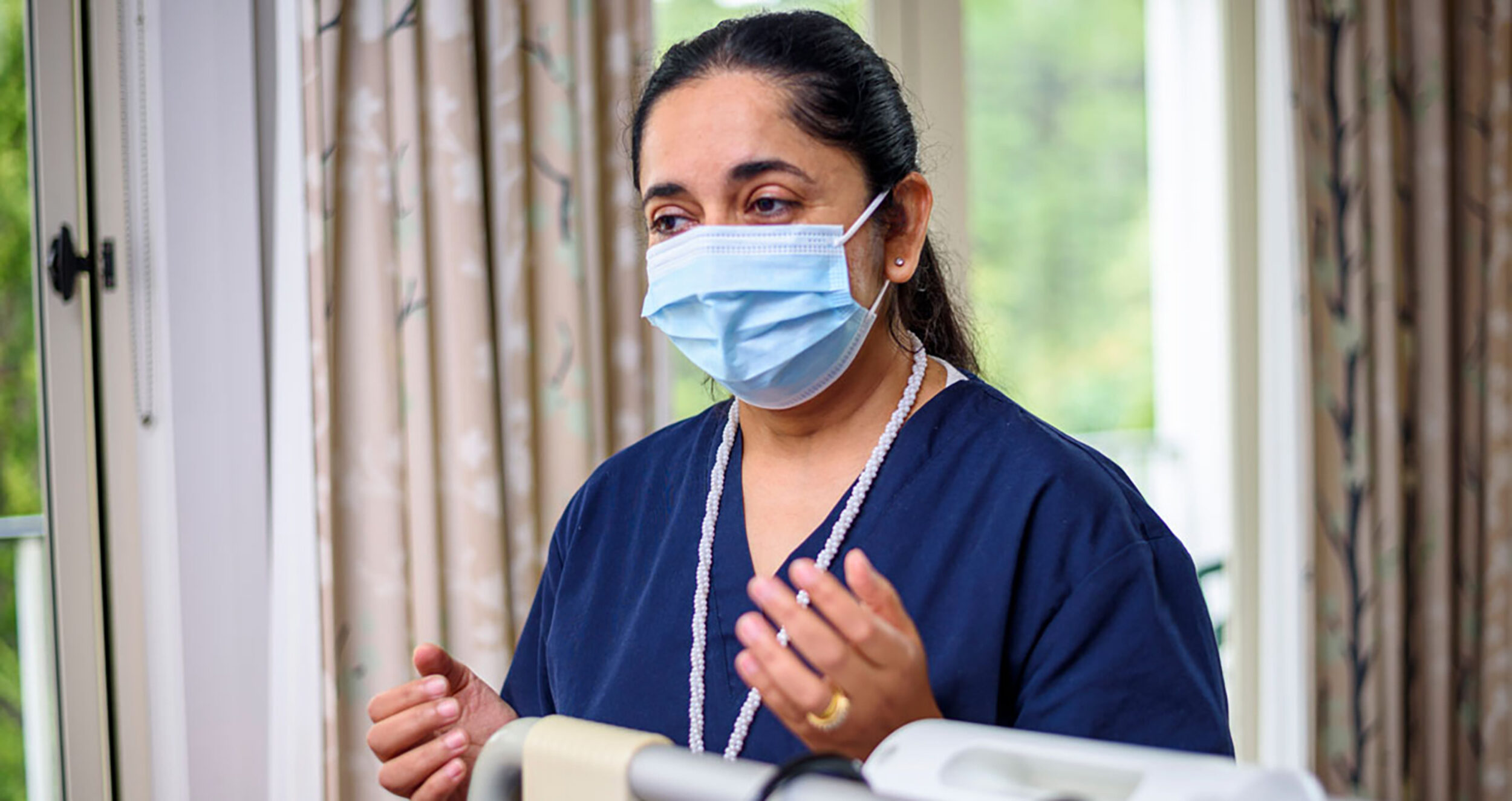A day in the life of a Tōtara Hospice social worker
A day in the life of a Tōtara Hospice social worker

Jessica Londhe, Tōtara Hospice Social Worker, has just stopped for a quick coffee break after visiting two of her at-home patients this morning.
She pauses for a deep breath. It’s been a tough morning supporting families as well as the terminally ill.
Her role is a demanding one that calls for both professionalism and sensitivity. It is a job that covers a wide range of roles, such as helping patients deal with the emotional pain of being terminally ill, helping them put their wills in place or arranging their funeral plans, and supporting whānau who are struggling to come to terms with their loved ones’ illness.
Tōtara Hospice in the Community
Few people are aware that our role is much broader than hospice beds. In fact, only 16% of our patients enter the Hospice Inpatient Unit. The majority of those we care for are home-based and require community workers to visit them and coordinate their needs as well as supporting the wider whānau.
Tōtara Hospice has a large Hospice-At-Home team, including social workers like Jessica, physio’s, occupational therapists, spiritual and cultural consultants, nurses and bereavement counsellors.
*Names and some details have been changed to protect the privacy of our patients.
Jessica’s diary of a typical day provides insight into the broad range of scenarios our patients and their whānau are facing and shows the many avenues of support Tōtara Hospice provides to those facing a terminal diagnosis and their loved ones.
Jessica’s diary of a typical day
8.30am – In the office
After our clinical meeting I check my emails and prepare all the files I need for the day. Jump in the car and off I go to see Tina.
9.30am – Tina, 29
Tina is a young mum with terminal cancer and four children aged under 10. She is overcome with grief today and worried about her children. I organise with our fundraising team for her to be able to buy them some toys, probably the last from her. It’s a small thing to do for her but has so much meaning.
11.00am – Fetu, 57
Fetu has an inoperable brain tumour. His family are exhausted and stressed as he was the main breadwinner. I am seeking out every avenue available for financial help. Fetu’s cognitive functions have decreased and he can only remember his sister and daughter, not other family members. I suggest to the whānau that it’s time for Fetu to move to a high-care facility. The whānau is hesitant but knows it is the right decision. I call the high-care facility to check the availability of a bed and to organise transport.
12.30pm – Lunch
Back at the office, I grab a quick bite. I call two lawyers to organise a Will at short notice. I know how tough it can be for a whānau to sort out their financial affairs without one. One of them says yes.
1.30pm John - 56
John recently lost his wife to breast cancer and is struggling to cope with his grief. He gives me a big hug as soon as I walk through the door.
Earlier he found his little daughter’s diary. The last entry said, “Mummy, please get well soon”. I organise for John to receive bereavement counselling from our Hospice team.
2.30pm – Helen, 26
Helen was living overseas when she was diagnosed with terminal cancer. She returned home to New Zealand with her partner to be with her whānau, who are understandably distraught. Helen’s decline has been fast. She’s in significant pain and no longer communicative.
I speak to Dr. James at our Inpatient Unit and we agree Helen should be brought in immediately. I gently discuss with the whānau the need to start thinking about funeral plans, but not today.
4.00pm – Jamal, 42
Jamal has renal failure. He lives with his whānau in poor housing conditions, severely affecting his already ailing health. Everyone is overwhelmed, helpless, and distraught. They beg me to find them somewhere safer and more suitable. Back at the office, I apply for emergency accommodation through Kāinga Ora.
5.00pm - Leave the office
After completing all my paperwork and making some final phone calls, I race to watch my son’s soccer game. I take a moment to appreciate how valuable time with family is. Especially today.
Appreciating each and every day
It was a tough day, but Jessica remains positive.
Each and every day, she rubs up against the harsh realities of life. But she also sees so much love. So many beautiful moments between whānau and friends. So much gratitude towards her for the role she plays. It means she is more aware than most that each day is a gift.
As Jessica says, “Time is precious for our patients.” Jessica, and all our staff, play a crucial part in making each of those remaining moments count.

If you would like to support the work of Tōtara Hospice please consider making a donation.
Donate now



